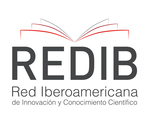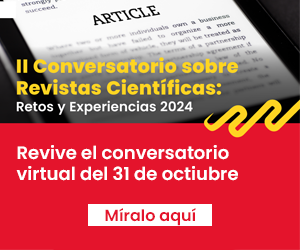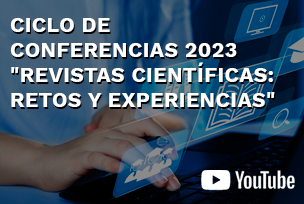Escala de Florecimiento: análisis psicométrico en hombres homosexuales cisgénero
DOI:
https://doi.org/10.20453/rnp.v87i3.5344Palabras clave:
florecimiento, homosexualidad, cisgénero, hombres, LGBTQ+Resumen
Objetivo: Analizar las evidencias de validez de la Escala de Florecimiento en hombres homosexuales cisgénero peruanos. Materiales y métodos: Muestra seleccionada mediante un procedimiento por bola de nieve, utilizando criterios de inclusión y exclusión. Un total de 307 adultos que cumplían con los criterios participaron en el estudio y completaron la Escala de Florecimiento. Para evaluar la estructura interna del instrumento, se llevó a cabo un análisis factorial confirmatorio (AFC). Se analizó, asimismo, la consistencia interna y la evidencia de validez en relación con otras variables. Resultados: Se demostró una estructura unidimensional y una fiabilidad aceptable. La mayoría de los índices de ajuste del modelo fueron adecuados; sin embargo, el RMSEA resultó alto. Conclusión: Se considera que el modelo propuesto puede ser utilizado ya que casi todos los índices de ajuste resultaron satisfactorios.
Descargas
Citas
Ministerio de Justicia y Derechos Humanos (PE); IPSOS. II Encuesta Nacional de Derechos Humanos: Población LGTB [Internet]. Lima: MINJUSDH; 2020. Disponible en: https://www.ipsos.com/sites/default/files/ct/news/documents/2020-06/presentacion_ii_encuesta_nacional_ddhh.pdf
Instituto Nacional de Estadística e Informática (PE). Primera Encuesta Virtual para Personas LGBTI, 2017 [Internet]. Lima: INEI; 2018. Disponible en: https://www.inei.gob.pe/media/MenuRecursivo/boletines/lgbti.pdf
Organización Panamericana de Salud; Organización Mundial de la Salud. Informe del director sobre el abordaje de las causas de las disparidades en cuanto al acceso y la utilización de los servicios de salud por parte de las personas lesbianas, homosexuales, bisexuales y trans [Internet]. OPS; OMS; 2018. Disponible en: https://iris.paho.org/bitstream/handle/10665.2/59922/CD56-INF-11-corr_spa.pdf?sequence=1&isAllowed=y
Centro de Promoción y Defensa de los Derechos Sexuales y Reproductivos. Resumen ejecutivo: Informe Anual sobre la Situación de los Derechos Humanos de las Personas LGBTI en el Perú 2021 [Internet]. Lima: PROMSEX; 2022. Disponible en: https://promsex.org/wp-content/uploads/2022/08/Resumen-Ejecutivo-Informesobre-la-situacion-de-los-derechos-humanos-delas-personas-lgbti-en-el-Peru.pdf
IPSOS. Día del Orgullo 2023: Informe con las principales mediciones sobre las actitudes de los peruanos hacia las personas LGBTIQA+ [Internet]. IPSOS; 2023. Disponible en: https://www.ipsos.com/sites/default/files/ct/news/documents/2023-06/D%C3%ADa%20del%20orgullo%202023_V5.pdf
Asociación Civil Más Igualdad Perú. Salud mental de personas LGBTQ+ en Perú [Internet]. Lima: Más Igualdad; 2021. Disponible en: https://www.masigualdad.pe/_files/ugd/4aec54_d267bbb3a8564e1980f90ccd15281c39.pdf?index=true
Calvillo C, Sánchez-Fuentes MM, Parrón T, Sierra JC. Validación de la versión breve de la Experiences in Close Relationship en adultos con pareja del mismo sexo. RIDEP [Internet]. 2020; 2(55): 107-119. Disponible en: https://doi.org/10.21865/RIDEP55.2.08
Orellana L, Alarcón T, Schnettler B, Riquelme-Segura L, Mora M, Adasme-Berríos C, et al. Propiedades psicométricas de la Escala de Actitudes y Creencias Heteronormativas (HABS) en español: dos estudios con muestras universitarias chilenas. RIDEP [Internet]. 2023; 1(71): 85-97. Disponible en: https://doi.org/10.21865/RIDEP71.1.07
Carranza-Benites R. Disidencias sexuales: satisfacción con la vida y dependencia emocional. Psicol UNEMI [Internet]. 2024; 8(15): 32-43. Disponible en: https://doi.org/10.29076/issn.2602-8379vol8iss15.2024pp32-43p
Yang S, Li Y, Wheldon CW, Prosperi M, George TJ, Shenkman EA, et al. The burden of cancer and pre-cancerous conditions among transgender individuals in a large healthcare network [preprint en Internet]. MedRxiv; 2024, 26 de marzo. Disponible en: https://doi.org/10.1101/2024.03.24.24304777
Barragán AR. Bienestar, salud mental óptima y florecimiento: esclareciendo y diferenciando conceptos complejos. Liberabit [Internet]. 2023; 29(2): e680. Disponible en: https://ojs3.revistaliberabit.com/index.php/Liberabit/article/view/680
Bryan A, Mayock P. Supporting LGBT Lives? Complicating the suicide consensus in LGBT mental health research. Sexualities [Internet]. 2017; 20(1-2): 65-85. Disponible en: https://doi.org/10.1177/1363460716648099
Klibert JJ, Choudhury S, Yancey CT. A sexual minority model of flourishing: examining the interactions among negative emotions, positive emotions, and sexual orientation identity status. J Gay Lesbian Ment Health [Internet]. 2022; 26(1): 24–47. Disponible en: https://doi.org/10.1080/19359705.2021.1883495
Bullock GS, Collins GS, Peirce N, Arden NK, Filbay SR. Health-related quality of life and flourishing in current and former recreational and elite cricketers. Health Qual Life Outcomes [Internet]. 2020; 18: 41. Disponible en: https://doi.org/10.1186/s12955-020-01301-7
Prusiński T. The strength of alliance in individual psychotherapy and patient’s wellbeing: the relationships of the therapeutic alliance to psychological wellbeing, satisfaction with life, and flourishing in adult patients attending individual psychotherapy. Front Psychiatry [Internet]. 2022; 13: 8273. Disponible en: https://doi.org/10.3389/fpsyt.2022.827321
Ryan RM, Deci EL. On happiness and human potentials: a review of research on hedonic and eudaimonic well-being. Annu Rev Psychol [Internet]. 2001; 52: 141-166. Disponible en: https://doi.org/10.1146/annurev.psych.52.1.141
Ryff CD. Happiness is everything, or is it? Explorations on the meaning of psychological well-being. J Pers Soc Psychol [Internet]. 1989; 57(6): 1069-1081. Disponible en: https://doi.org/10.1037/0022-3514.57.6.1069
Ryff CD, Singer BH. Best news yet on the sixfactor model of well-being. Soc Sci Res [Internet]. 2006; 35(4): 1103-1119. Disponible en: https://doi.org/10.1016/j.ssresearch.2006.01.002
Gentzler AL, DeLong KL, Palmer CA, Huta V. Hedonic and eudaimonic motives to pursue wellbeing in three samples of youth. Motiv Emot [Internet]. 2021; 45: 312-326. Disponible en: https://doi.org/10.1007/s11031-021-09882-6
Keyes CL, Shmotkin D, Ryff CD. Optimizing well-being: the empirical encounter of two traditions. J Pers Soc Psychol [Internet]. 2002; 82(6): 1007-1022. Disponible en: https://doi.org/10.1037/0022-3514.82.6.1007
Diener E. Subjective well-being. Psychol Bull [Internet]. 1984; 95(3): 542-575. Disponible en: https://doi.org/10.1037/0033-2909.95.3.542
Diener, E. Subjective well-being [Internet]. In: Diener E, editor. The Science of Well-Being: The Collected Works of Ed Diener. Dordrecht: Springer; 2009. pp. 11-58. Disponible en: https://doi.org/10.1007/978-90-481-2350-6_2
Diener E, Wirtz D, Tov W, Kim-Prieto C, Choi D, Oishi S, et al. New well-being measures: short scales to assess flourishing and positive and negative feelings. Soc Indic Res [Internet]. 2010; 97(2): 143-156. Disponible en: https://doi.org/10.1007/s11205-009-9493-y
Tong KK, Wang YY. Validation of the Flourishing Scale and Scale of Positive and Negative Experience in a Chinese community sample. PLoS ONE [Internet]. 2017; 12(8): e0181616. Disponible en: https://doi.org/10.1371/journal.pone.0181616
Vera AI, Yaccarini C, Simkin H. Adaptación y evidencia de validez de la Escala de Florecimiento para la población argentina. Subj Procesos Cogn [Internet]. 2022; 26(1): 53-72. Disponible en: http://dspace.uces.edu.ar:8180/xmlui/handle/123456789/6224
Feinstein BA, Dodge B, Korpak AK, Newcomb ME, Mustanski B. Improving the health of cisgender men who identify as bisexual: what do they want from interventions? Sex Res Social Policy [Internet]. 2019; 16(3): 385-391. Disponible en: https://doi.org/10.1007/s13178-019-0380-2
Stark BA, Obedin-Maliver J, Shindel AW. Sexual wellness in cisgender lesbian, gay, and bisexual people. Urol Clin North Am [Internet]. 2021; 48(4): 461-472. Disponible en: https://doi.org/10.1016/j.ucl.2021.06.005
Schotanus-Dijkstra M, Ten Klooster PM, Drossaert CH, Pieterse ME, Boiler L, Walburg JA, et al. Validation of the Flourishing Scale in a sample of people with suboptimal levels of mental well-being. BMC Psychol [Internet]. 2016; 4: 12. Disponible en: https://doi.org/10.1186/s40359-016-0116-5
Fassih-Ramandi Z, Soleimani MA, Allen KA, Gorgulu O, Motalebi SA. Validity and reliability of the Flourishing Scale in a sample of older adults in Iran. Clin Interv Aging [Internet]. 2020; 15: 673-681. Disponible en: https://doi.org/10.2147/cia.s251067
Kyriazos TA, Stalikas A, Prassa K, Yotsidi V, Galanakis M, Pezirkianidis C. Validation of the Flourishing Scale (FS), Greek version and evaluation of two well-being models. Psychol [Internet]. 2018; 9(7): 1789-1813. Disponible en: https://doi.org/10.4236/psych.2018.97105
Weziak-Bialowolska D, Bialowolski P, Lee MT, Chen Y, VanderWeele TJ, McNeely E. Psychometric properties of Flourishing Scales from a comprehensive well-being assessment. Front Psychol [Internet]. 2021; 12: 12652209. Disponible en: https://doi.org/10.3389/fpsyg.2021.652209
González-Rivera JA. Propiedades psicométricas de la Escala de Florecimiento en Puerto Rico. Evaluar [Internet]. 2018; 18(3): 30-43. Disponible en: https://doi.org/10.35670/1667-4545.v18.n3.22203
Cassaretto M, Martínez P. Validación de las Escalas de Bienestar, de Florecimiento y Afectividad. Pensam Psicol [Internet]. 2017; 15(1): 19-31. Disponible en: https://doi.org/10.11144/Javerianacali.PPSI15-1.VEFA
Ato M, López JJ, Benavente A. Un sistema de clasificación de los diseños de investigación en psicología. An Psicol [Internet]. 2013; 29(3): 1038-1059. Disponible en: https://doi.org/10.6018/analesps.29.3.178511
Spitzer RL, Kroenke K, Williams JB, Löwe B. A brief measure for assessing generalized anxiety disorder: the GAD-7. Arch Intern Med [Internet]. 2006; 166(10): 1092-1097. Disponible en: https://doi.org/10.1001/archinte.166.10.1092
Franco-Jimenez RA, Nuñez-Magallanes A. Propiedades psicométricas del GAD-7, GAD-2 y GAD-Mini en universitarios peruanos. Propós Represent [Internet]. 2022; 10(1): e1437. Disponible en: https://doi.org/10.20511/pyr2022.v10n1.1437
Colegio de Psicólogos del Perú. Código de Ética y Deontología [Internet]. Lima: CPSP; 2017. Disponible en: https://www.cpsp.pe/codigo-deetica-y-deontologia
World Medical Association. World Medical Association Declaration of Helsinki. Ethical principles for medical research involving human subjects. Bull World Health Organ [Internet]. 2001; 79(4): 373-374. Disponible en: https://www.ncbi.nlm.nih.gov/pmc/articles/PMC2566407/
Hu L, Bentler PM. Cutoff criteria for fit indexes in covariance structure analysis: conventional criteria versus new alternatives. Struct Equ Modeling [Internet]. 1999; 6(1): 1-55. Disponible en: https://doi.org/10.1080/10705519909540118
Cohen J. Statistical Powers Analysis for the Behavioral Sciences. Hillsdale: Lawrence Erlbaum Associates; 1988.
Ventura-León JL, Caycho-Rodríguez T. El coeficiente omega: un método alternativo para la estimación de la confiabilidad. Rev Latinoam Cienc Soc Niñez Juv [Internet]. 2017; 15(1): 625-627. Disponible en: https://www.redalyc.org/pdf/773/77349627039.pdf
Cabrera-Nguyen P. Author Guidelines for Reporting Scale development and validation results in the Journal of the Society for Social Work and Research. J Soc Social Work Res [Internet]. 2010; 1(2): 99-103. Disponible en: https://doi.org/10.5243/jsswr.2010.8
Stevens J. Applied Multivariate Statistics for the Social Sciences. 4.a ed. Mahwah: Lawrence Erlbaum Associates; 2002.
Ventura-León J. Dos formas fáciles de interpretar las famosas cargas factoriales. Gaceta Sanitaria [Internet]. 2019; 33(6): 599. Disponible en: https://dx.doi.org/10.1016/j.gaceta.2019.04.002
Giuntoli L, Ceccarini F, Sica C, Caudek C. Validation of the Italian versions of the Flourishing Scale and of the Scale of Positive and Negative Experience. SAGE Open [Internet]. 2017; 7(1): 215824401668229. Disponible en: https://doi.org/10.1177/2158244016682293
Pozo-Muñoz C, Garzón-Umerenkova A, Bretones-Nieto B, Ligia-Charry C. Psychometric properties and dimensionality of the Flourishing Scale in Spanish-speaking population. Electron J Res Educ Psychol [Internet]. 2016; 14(1): 175-192. Disponible en: https://www.redalyc.org/pdf/2931/293144934009.pdf
Romano I, Ferro MA, Patte KA, Diener E, Leatherdale ST. Measurement invariance of the Flourishing Scale among a large sample of Canadian adolescents. Int J Environ Res Public Health [Internet]. 2020; 17(21): 7800. Disponible en: https://doi.org/10.3390/ijerph17217800
Silva AJ, Caetano A. Validation of the Flourishing Scale and Scale of Positive and Negative Experience in Portugal. Soc Indic Res [Internet]. 2011; 110(2): 469-478. Disponible en: https://doi.org/10.1007/s11205-011-9938-y
Singh K, Junnarkar M, Jaswal S. Validating the Flourishing Scale and the Scale of Positive and Negative Experience in India. Ment Health Relig Cult [Internet]. 2016; 19(8): 943-954. Disponible en: https://doi.org/10.1080/13674676.2016.1229289
Sumi K. Reliability and validity of Japanese versions of the Flourishing Scale and the Scale of Positive and Negative Experience. Soc Indic Res [Internet]. 2013; 118(2): 601-615. Disponible en: https://doi.org/10.1007/s11205-013-0432-6
Tan Q, Zhang L, Li W, Kong F. Longitudinal measurement invariance of the Flourishing Scale in adolescents. Curr Psychol [Internet]. 2021; 40: 5672-5677. Disponible en: https://doi.org/10.1007/s12144-021-01754-z
Howell AJ, Buro K. Measuring and predicting student well-being: further evidence in support of the Flourishing Scale and the Scale of Positive and Negative Experiences. Soc Indic Res [Internet]. 2014; 121(3): 903-915. Disponible en: https://doi.org/10.1007/s11205-014-0663-1
Didino D, Taran EA, Barysheva GA, Casati F. Psychometric evaluation of the Russian version of the Flourishing Scale in a sample of older adults living in Siberia. Health Qual Life Outcomes [Internet]. 2019; 17: 34. Disponible en: https://doi.org/10.1186/s12955-019-1100-6
Morata-Ramírez MA, Holgado-Tello F, Barbero-García MI, Mendez G. Análisis factorial confirmatorio. Recomendaciones sobre mínimos cuadrados no ponderados en función del error tipo I de ji-cuadrado y RMSEA. Acción Psicol [Internet]. 2015; 12(1): 79-90. Disponible en: https://dx.doi.org/doi.org/10.5944/ap.12.1.14362
Schotanus-Dijkstra M, Pieterse ME, Drossaert CH, Westerhof GJ, De Graaf R, Ten Have A, et al. What factors are associated with flourishing? Results from a large representative national sample. J Happiness Stud [Internet]. 2016; 17: 1351-1370. Disponible en: https://doi.org/10.1007/s10902-015-9647-3
Camargo L, Herrera-Pino J, Shelach S, Soto-Añari M, Porto MF, Alonso M, et al. Escala de Ansiedad Generalizada GAD-7 en profesionales médicos colombianos durante pandemia de COVID-19: validez de constructo y confiabilidad. Rev Colomb Psiquiatr [Internet]. 2023; 52(3): 245-250. Disponible en: https://doi.org/10.1016/j.rcp.2021.06.003
Barragán AR. Florecimiento y salud mental óptima en tiempos de COVID-19. Psicol Iberoam [Internet]. 2021; 29(1). Disponible en: https://doi.org/10.48102/pi.v29i1.244
Descargas
Publicado
Cómo citar
Número
Sección
Licencia
Derechos de autor 2024 Renzo Carranza-Benites

Esta obra está bajo una licencia internacional Creative Commons Atribución-NoComercial 4.0.
















